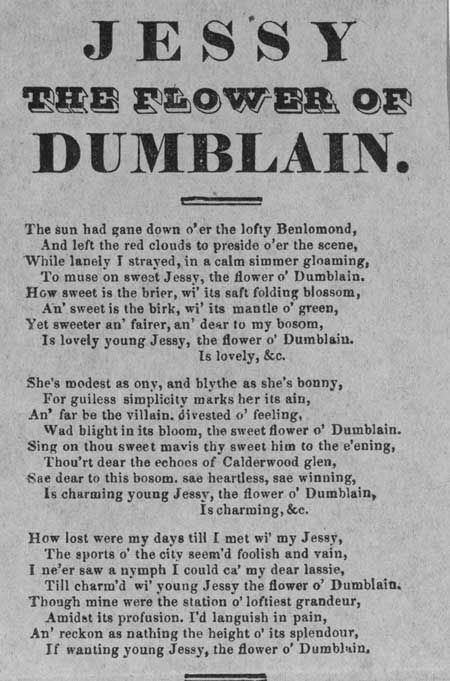Commentary
Verse 1: 'The sun had gane down o'er the lofty Benlomond, / And left the red clouds to preside o'er the scene, / While lanely I strayed, in a calm simmer gloaming, / To muse on sweet Jessy, the flower o' Dumblain. / How sweet is the brier, wi' its saft folding blossom, / An' sweet is the birk, wi' its mantle o' green, / Yet sweeter an' fairer, an' dear to my bosom, / Is lovely young Jessy, the flower o' Dumblain.' 'Dumblain' is an archaic spelling of Dunblane in Perthshire. 'Jessy the Flower of Dumblain' is not the only song to use that spelling of the town's name in its title: Sir Walter Scott's first novel 'Waverley' refers to a song entitled 'Bob of Dumblain'. 'Jessy . . .', is narrated by a man in praise of the woman he loves, and compares her favourably with all the most beautiful aspects of nature. It is quite a conventional romatic song, of a kind that was popular and frequently printed on broadsides. Early ballads were dramatic or humorous narrative songs derived from folk culture that predated printing. Originally perpetuated by word of mouth, many ballads survive because they were recorded on broadsides. Musical notation was rarely printed, as tunes were usually established favourites. The term 'ballad' eventually applied more broadly to any kind of topical or popular verse.
View Transcription | Download PDF Facsimile
|
 |
Probable period of publication:
1860-1890 shelfmark: L.C.Fol.178.A.2(082)
 View larger image
View larger image
|


